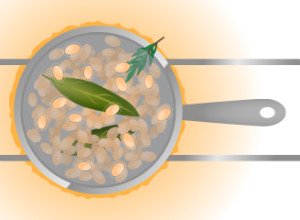Whole Food Diet for Heart Health
 Early nutrition recommendations to lower blood levels of cholesterol and to reduce the risk of heart disease focused on reducing total fat, saturated fat, and cholesterol intake. According to a report published in the American Journal of Medicine, multiple research studies have demonstrated that limiting total fat and cholesterol reduces blood cholesterol levels, but does not prevent heart disease and stroke. In fact, the research shows that an eating plan focused on fish, whole grains, vegetables, fruit, and olive oil reduces the risk of cardiovascular events in a way that is equal to or greater than treatment with cholesterol-lowering statin medications.The MRFIT study conducted from 1974-1982 showed that following guidelines of limiting total fat intake to less than 30% of calories, saturated fat to 8-10% of calories, and cholesterol from foods to 250-300mg per day modestly reduced blood levels of cholesterol by 3-5%. However, death from cardiovascular disease was not reduced. A Mediterranean-style diet containing higher amounts of total fat and healthy monounsaturated fat from olive oil, nuts and seeds led to a 30% reduction in stroke, heart attack, and cardiovascular death. The type of foods we choose is more important than an overall low-fat diet.Choose a whole foods approach that pays equal attention to the types of foods consumed as well as types of foods to exclude.Eat more:
Early nutrition recommendations to lower blood levels of cholesterol and to reduce the risk of heart disease focused on reducing total fat, saturated fat, and cholesterol intake. According to a report published in the American Journal of Medicine, multiple research studies have demonstrated that limiting total fat and cholesterol reduces blood cholesterol levels, but does not prevent heart disease and stroke. In fact, the research shows that an eating plan focused on fish, whole grains, vegetables, fruit, and olive oil reduces the risk of cardiovascular events in a way that is equal to or greater than treatment with cholesterol-lowering statin medications.The MRFIT study conducted from 1974-1982 showed that following guidelines of limiting total fat intake to less than 30% of calories, saturated fat to 8-10% of calories, and cholesterol from foods to 250-300mg per day modestly reduced blood levels of cholesterol by 3-5%. However, death from cardiovascular disease was not reduced. A Mediterranean-style diet containing higher amounts of total fat and healthy monounsaturated fat from olive oil, nuts and seeds led to a 30% reduction in stroke, heart attack, and cardiovascular death. The type of foods we choose is more important than an overall low-fat diet.Choose a whole foods approach that pays equal attention to the types of foods consumed as well as types of foods to exclude.Eat more:
- Vegetables and fruit. Choose a variety of colorful produce for greater intake of healthful phytochemicals and antioxidants. Fill half of your plate with vegetables at every meal, and choose fruit for dessert and snacks.
- Fish and seafood. Choose herring, sardines, tuna, or salmon at least twice each week. Bake, broil, or grill seafood instead of breading and frying it.
- Legumes. Dried beans and peas are excellent plant sources of protein and fiber.
- Whole grains. Include small amounts of whole grains with most meals.Healthy fats. Olive oil, nuts, seeds, avocados, and olives are high in healthy fat.
Eat less:
- Red meat. Choose smaller portions and replace red meat with fish or legumes.
- Animal fats. Replace them with olive oil, avocado, hummus, etc.
- Sugar. Enjoy fresh fruit for dessert and save sweets for special occasions.
By Lynn Grieger, RDN, CDE, CPT, CWCReferences:
- James E. Dalen, Stephen Devries. Diets to Prevent Coronary Heart Disease 1957- 2013: What Have We Learned? The American Journal of Medicine; DOI: 10.1016/j.amjmed.2013.12.014
- Mediterranean Diet 101. Oldways. http://oldwayspt.org/resources/heritage-pyramids/get-started-go-med Accessed 2-15-14
